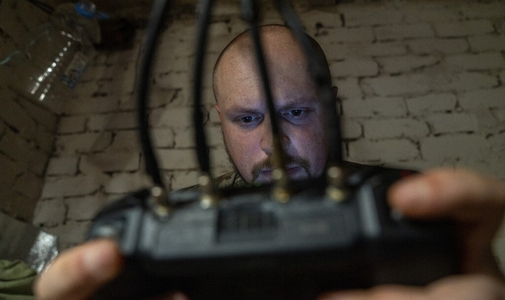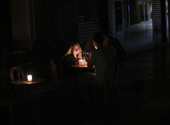Anomia and the rise of petty thievery
What have villages given the cities over the past 15 years? Metal theft. Durkheim and Merton would find the Hungarian provinces fertile ground for research into the theory of deviancy.
The closure of local primary schools, small post offices and railways with little traffic has kicked up a storm in recent years. Local government leaders and opposition politicians have both stressed the serious consequences of these economically necessarily decisions, warning that closures will make it impossible for smaller villages to recover from their current crisis. Birth rates are falling, the populations of these villages are ageing, and those who remain stay at home, taking no part in village life, not even going to church. Active youth leaves the provinces, where there is hardly any work, moving to larger cities or seeking work abroad. The elderly are giving up on agriculture, perhaps rearing animals for their own needs in order to supplement their meagre pensions.
Centuries-old rhythms are dying out. The old farming families that once enjoyed respect in the village are disappearing. No longer do they set an example for the others. The new arrivals are work-shy and deviant, supplementing their benefit hand-outs with minor theft, carving out a dominant niche for themselves in the last remaining locus of community life: the pub. Criminal and violent elements terrorise the rest of the village's population, but the authorities are powerless against them, while the police provide no protection. Of course, it's hard for the police if they're not even there.
The French sociologist Durkheim called this situation anomia. This Greek word means not fitting in. It is the situation that obtains when traditional norms and rules start to loosen in modern societies, and no new norms or rules emerge to take their place. The rules that make it possible for people in a locality to live together become confused, and these social norms cease to influence individuals' behaviour. Durkheim linked suicide to anomia, which his American colleague RK Merton then developed into a theory of deviancy. He explained the phenomenon of anomia as the conflict between accepted norms and social reality - more precisely, a conflict between socially accepted values and the limited means available make those norms reality. Individuals, he said, react to this conflict in different ways, with some becoming becoming habitual perpetrators of crime.
There is no doubt that petty crime has flourished in disadvantaged Hungarian villages, in many of which it is no longer worth planting corn or grow fruit, because most of it will be stolen by thieves. Police are essentially powerless against people who steal to survive, even though they can finger the perpetrator's family. The authorities' hands are tied by the need to keep within the law, to assign guilt to an individual and gather evidence sufficient for a conviction. It seems like the defenceless of the village - the old and the ill - have to accept the unacceptable, living with constant theft.
Metal theft is one form of survival crime that has recently spread to the cities, affecting the country's infrastructure and some of the capital's most elegant public spaces. Residents can no longer pretend they are unaffected: they must react. This is not about apples stolen from trees or carrots dug up from the earth, but about statues, bells, railway cables, road signs and electricity substations being damaged. These barbarian attacks no longer endanger cultural institutions and property, but lives as well. Repairing public spaces and statues costs local authorities money, but damaging railway security systems and road signs affects everyone - metal theft has become a problem for the whole of Hungarian society.
Gyorgy Gemesi, the mayor of Godollo responded to the theft of a bronze statue by suggesting that dealing in precious metals should become a state monopoly, allowing the thieves to be caught by the traders. It's certainly necessary to tighten up purchase rules and register the names of sellers, but that won't be enough given today's metal markets. Prevention is the best approach - and local police officers, in daily contact with local residents, are best placed to do this. Whether there is the political will to create the legal framework that will allow authorities to take action against these kinds of crimes is another matter.
Take one concrete example, as reported in Nepszabadsag. In the Balaton village of Lepseny, both his family and the entire village knew that Gabor Lazar lived from metal theft. Two or three times a week, the man, who lived off petty theft, would nick some copper or aluminium. He had links to four or five metals traders. Everyone knew the man, by his own admission a kleptomaniac, who spent his money in pubs and on slot machines. The local police knew as well. But they did nothing until he became the victim of a mysterious accident (?) and disappeared. His bicycle has been found, but his corpse has not been located.
How many metal thieves like him are there in Hungary? Will officials who search their houses or take out injunctions confining them to their homes in the small hours be accused of "racist discrimination"? Is it acceptable to threaten metals dealers with the loss of their licence if they take scrap metal from thieves? I don't know the answer, but the current situation of general anomia, is unsustainable.
Centuries-old rhythms are dying out. The old farming families that once enjoyed respect in the village are disappearing. No longer do they set an example for the others. The new arrivals are work-shy and deviant, supplementing their benefit hand-outs with minor theft, carving out a dominant niche for themselves in the last remaining locus of community life: the pub. Criminal and violent elements terrorise the rest of the village's population, but the authorities are powerless against them, while the police provide no protection. Of course, it's hard for the police if they're not even there.
The French sociologist Durkheim called this situation anomia. This Greek word means not fitting in. It is the situation that obtains when traditional norms and rules start to loosen in modern societies, and no new norms or rules emerge to take their place. The rules that make it possible for people in a locality to live together become confused, and these social norms cease to influence individuals' behaviour. Durkheim linked suicide to anomia, which his American colleague RK Merton then developed into a theory of deviancy. He explained the phenomenon of anomia as the conflict between accepted norms and social reality - more precisely, a conflict between socially accepted values and the limited means available make those norms reality. Individuals, he said, react to this conflict in different ways, with some becoming becoming habitual perpetrators of crime.
There is no doubt that petty crime has flourished in disadvantaged Hungarian villages, in many of which it is no longer worth planting corn or grow fruit, because most of it will be stolen by thieves. Police are essentially powerless against people who steal to survive, even though they can finger the perpetrator's family. The authorities' hands are tied by the need to keep within the law, to assign guilt to an individual and gather evidence sufficient for a conviction. It seems like the defenceless of the village - the old and the ill - have to accept the unacceptable, living with constant theft.
Metal theft is one form of survival crime that has recently spread to the cities, affecting the country's infrastructure and some of the capital's most elegant public spaces. Residents can no longer pretend they are unaffected: they must react. This is not about apples stolen from trees or carrots dug up from the earth, but about statues, bells, railway cables, road signs and electricity substations being damaged. These barbarian attacks no longer endanger cultural institutions and property, but lives as well. Repairing public spaces and statues costs local authorities money, but damaging railway security systems and road signs affects everyone - metal theft has become a problem for the whole of Hungarian society.
Gyorgy Gemesi, the mayor of Godollo responded to the theft of a bronze statue by suggesting that dealing in precious metals should become a state monopoly, allowing the thieves to be caught by the traders. It's certainly necessary to tighten up purchase rules and register the names of sellers, but that won't be enough given today's metal markets. Prevention is the best approach - and local police officers, in daily contact with local residents, are best placed to do this. Whether there is the political will to create the legal framework that will allow authorities to take action against these kinds of crimes is another matter.
Take one concrete example, as reported in Nepszabadsag. In the Balaton village of Lepseny, both his family and the entire village knew that Gabor Lazar lived from metal theft. Two or three times a week, the man, who lived off petty theft, would nick some copper or aluminium. He had links to four or five metals traders. Everyone knew the man, by his own admission a kleptomaniac, who spent his money in pubs and on slot machines. The local police knew as well. But they did nothing until he became the victim of a mysterious accident (?) and disappeared. His bicycle has been found, but his corpse has not been located.
How many metal thieves like him are there in Hungary? Will officials who search their houses or take out injunctions confining them to their homes in the small hours be accused of "racist discrimination"? Is it acceptable to threaten metals dealers with the loss of their licence if they take scrap metal from thieves? I don't know the answer, but the current situation of general anomia, is unsustainable.

















